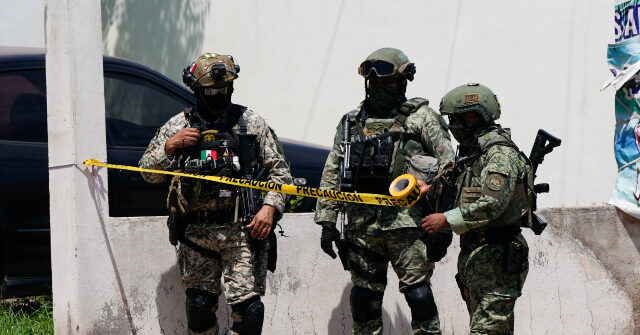The ongoing cartel violence in Mexico continues to pose severe risks to journalism, with the recent targeting of the newspaper El Debate in Sinaloa exemplifying the dangers faced by reporters in the region. Over a two-day span, gunmen launched a shooting attack on the newspaper’s headquarters in Culiacán, followed by the kidnapping of Sergio Cardenas Hernandez, a delivery driver for the publication. Cardenas’s fate remains unknown, as he was abducted shortly after the shooting, which suggests a calculated effort to intimidate those reporting on the escalating violence linked to the Sinaloa Cartel. This alarming trend occurs against a backdrop of consistent declarations from international press freedom organizations that categorize Mexico as one of the most perilous nations for journalists to operate.
In the aftermath of these violent incidents, the Mexican government expressed commitment to enhancing security measures for the affected journalists, pledging to address the rampant violence in Sinaloa. However, despite these assurances, officials have failed to locate Cardenas or offer meaningful updates on his situation more than 48 hours after his abduction. The lack of effective action in response to this incident raises questions about state efforts to safeguard press freedom and protect journalists reporting on drug-related violence in the country. The coverage from El Debate is especially significant as it plays a crucial role in shedding light on the brutal turf wars among rival factions of the Sinaloa Cartel, a narrative that persists despite the dangers.
The violence in Sinaloa has escalated following the dramatic capture of Ismael “El Mayo” Zambada, a prominent leader within the Sinaloa Cartel. His apprehension, attributed to his own godson Joaquin Guzman Lopez, has precipitated a fierce conflict between Zambada’s loyalists and Guzman’s faction, known as Los Chapitos. This internal strife has resulted in shootouts, numerous killings, and forced disappearances, further inflaming the already volatile region. The actions taken against the El Debate newspaper serve as a stark reminder of the high stakes involved in reporting on such turf wars, as well as the increased risks journalists face amidst the cartels’ vicious battle for control.
The violent targeting of El Debate underscores the broader context of decline in press freedoms in Mexico, where journalists face threats, harassment, and violence for their coverage of drug trafficking and organized crime. The intensifying strife in Sinaloa serves as a microcosm of the challenges faced by the Mexican media landscape as reporters confront not only the physical threats posed by powerful drug cartels but also systemic issues of impunity and governmental failure to protect their rights. The situation further highlights the grim reality for journalists who dare to confront and report on the crimes perpetrated by these criminal organizations, often at great personal risk.
The international community remains concerned about the erosion of press freedom in Mexico, with organizations such as Reporters Without Borders and the Committee to Protect Journalists frequently highlighting the country as one of the most dangerous places for media professionals. Reports indicate that many journalists have been forced to flee their homes or alter their reporting due to relentless threats from cartels. El Debate’s ongoing commitment to transparent reporting, even amid escalating violence, illustrates the courage and resilience of Mexican journalists dedicated to uncovering the truth regardless of the risks involved.
In conclusion, the targeted violence against El Debate exemplifies the severe challenges facing journalists in Mexico’s cartel-ridden landscape. The entrenchment of organized crime in state and local governance, coupled with a lack of adequate protection for media professionals, fosters an environment where fear and intimidation can silence critical voices. As the struggle for press freedom continues, the plight of El Debate and its employees serves as a poignant reminder of the sacrifices made by journalists who bravely endeavor to keep their communities informed about the realities of cartel violence and the ensuing conflict that engulfs their lives. The world must pay attention to these events and advocate for the protection of journalistic integrity in regions plagued by such rampant violence.

